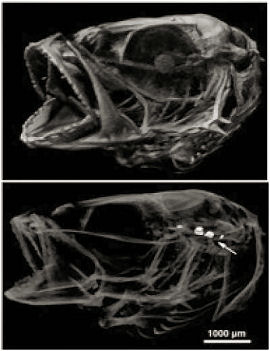
Ocean acidification is known to negatively impacta wide variety of marine animals, but new research indicates that a huge increase in hearing sensitivity for fish could also be one of the effects.
In the new study, published in the Proceedings of the National Academy of Sciences, researchers report on the potential effects of acidification on the sensory function of larval cobia. Cobia (Rachycentron canandum) are large tropical fish that are highly mobile as they mature and are popular among recreational anglers.
For the study, the research team utilized micro-CT scans to examine fish raised in low-pH seawater, simulating future levels of acidification. The researchers observed that those fish had larger and denser otoliths (ear stones) than those from higher-pH seawater.
Otoliths are calcium carbonate structures within the fish’s inner ear that are used for hearing and balance. The pH change resulted in up to a 58 percent increase in otolith mass, the study reports. When tested in a mathematical model of otolith function, the results showed an increase in hearing sensitivity and up to a 50 percent increase in hearing range.
“Increased hearing sensitivity could improve a fish’s ability to use sound for navigation, predator avoidance, and communication. However, it could also increase their sensitivity to common background noises, which may disrupt the detection of more useful auditory information,” said Sean Bignami, from the University of Miami.
Bignami concludes that while the ultimate ecological consequences are yet to be determined, there is the potential for serious impacts on processes such as larval fish development and fisheries replenishment in this species and perhaps others.
Related:
Discuss this article in our forum
Ocean acidification speeding up
Dire outlook for shellfish in a high CO2 world
Oceanic acidification unprecedented






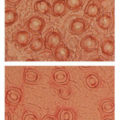


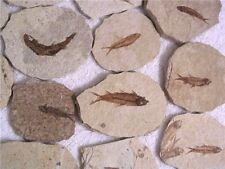


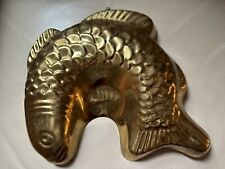




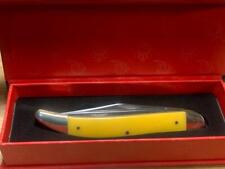
Comments are closed.